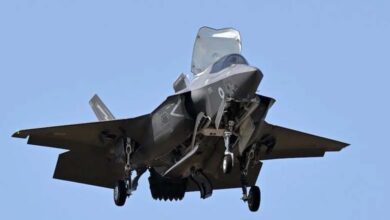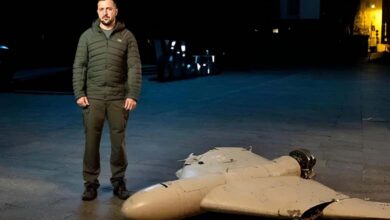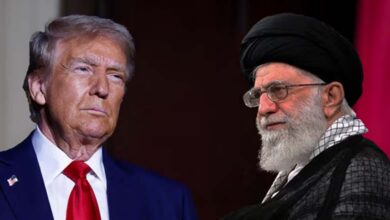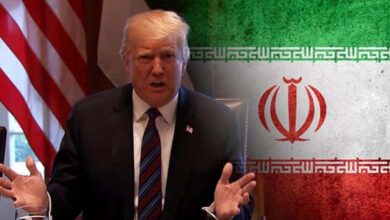Western Authorization to Strike Russia… Zelensky Seeks an “Italian Bullet”
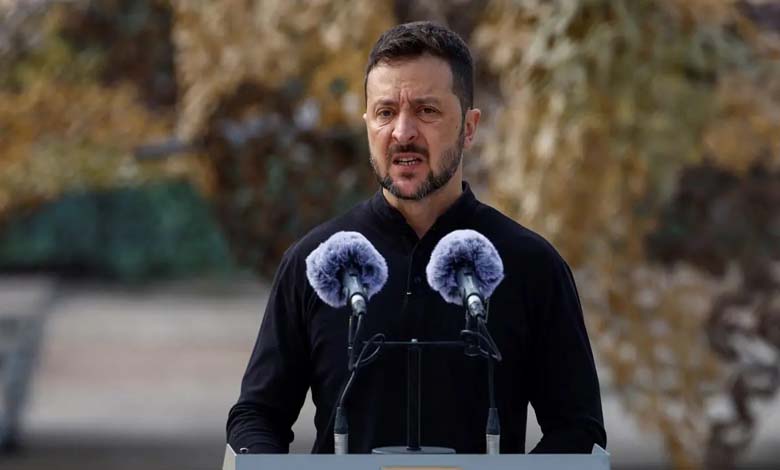
A new European stop for the Ukrainian president, seeking support that might grant him full authorization to use Western weapons to strike deep into Russia.
-
Zelensky Pledges Increase in Ukrainian-Made Weapons for Victory Against Russia
-
Zelensky attacks Netanyahu and criticizes Israeli aid to Ukraine Ukrainian
Today, Saturday, Volodymyr Zelensky continues his participation in an economic forum in Cernobbio, Northern Italy, where he will again request more weapons to counter the Russian advance in the east of his country.
On Friday, the Ukrainian president called for support for his country at the “European House – Ambrosetti” economic forum, a mini-Davos held until Sunday on the shores of Lake Como (north).
Yesterday, Zelensky arrived in Italy after calling for “more weapons” during a meeting with his country’s allies at the Ramstein Air Base in Western Germany.
-
Zelensky Heads Into New War, Wave of Exclusion Hits Ukrainian Officials
-
Zelenskyy Warns War Will Cost Russia for Generations
He stated via Telegram that he would meet on Saturday in Cernobbio with officials from Italian companies and with Italian Prime Minister Giorgia Meloni.
More than Just Support Needed
Meloni is expected to reaffirm her country’s steadfast support despite the opposition from Matteo Salvini, one of her right-wing and far-right coalition partners, who is strongly against any Ukrainian attack on Russian territory.
-
Putin calls for Ukraine military to take power into own hands and overthrow Zelensky
-
CNN reveals details of the deadliest Russian attack on Ukraine since the start of the war
It is still uncertain whether he will meet with Hungarian Prime Minister Viktor Orbán, who has remained close to the Kremlin despite the war in Ukraine and has expressed hope of meeting Zelensky.
Orbán told journalists, “We have a good relationship,” adding, “If there is no dialogue, there will be no chance for peace.”
-
Reward for Ukraine and ‘sanctions’ on Russia: American messages to both sides of the war
-
Ukrainian Incursion in the Largest Attack on Russia Since World War II: What Is Happening on the Border?
Long-Range Weapons
During their last direct meeting in Kyiv at the beginning of July, Orbán urged Zelensky to consider a “quick ceasefire,” highlighting the differences between them as well as those between Budapest and most European capitals.
Zelensky, for his part, emphasized the importance of “just peace,” noting that his country conditions a ceasefire on a complete withdrawal of Russian troops from Ukraine and compensation payments.
Orbán provoked anger and puzzlement within the European Union when he met with Russian President Vladimir Putin a few days later.
-
The UAE’s Mediations in the Ukraine Crisis: Successes Confirming Their Wise Diplomacy
-
Very Simple… Trump’s Secret Plan to End the War in Ukraine
The Hungarian Prime Minister, whose country currently holds the EU presidency, has maintained his positions, stating on Friday that achieving peace through negotiations requires a prior ceasefire.
However, he believes that “neither side intends to achieve peace.”
After two and a half years of war, Ukraine still faces difficulties in repelling attacks. Its recent offensive launched a month ago in the Kursk region of Russia has not managed to halt the advance of Russian troops in the east.
-
“Priority Map”: New Ukrainian Army Commander’s plan to defeat Russia
-
“Priority Map”: New Ukrainian Army Commander’s plan to defeat Russia
At the Ramstein Air Base, Zelensky reiterated his call to be allowed to use long-range weapons provided by his allies not only to target Russian-controlled areas in Ukraine but also Russian territory to destroy missile launch bases.
In Italy, he insisted that these weapons would not be used under any circumstances to strike civilians or non-military targets.
Concerns
However, many major countries, including the United States and Germany, still fear escalation with Moscow.
-
Invisible Battles: Gaza gains international support and sympathy at Ukraine’s expense
-
“Difficult” Talks in Saudi Arabia with the Aim to End the Ukrainian War
U.S. Defense Secretary Lloyd Austin stated after the meeting, “I don’t think that acquiring a specific capability (to counter Russia) will determine the outcome,” noting that Ukraine must rely on using various weapons.
German Defense Minister Boris Pistorius confirmed that Berlin’s position on this matter has not changed.
Austin announced new U.S. military aid worth $250 million “that will enhance capabilities to meet Ukraine’s needs.”
-
The Gulf contributes to solving the grain crisis after Russia’s withdrawal from the agreement
-
Putin’s New Year’s speech: Assertions of Russia’s Power and the West’s ‘Lie’
For its part, London announced on Friday a contract worth £162 million ($192 million) to send 650 multi-role, short-range missiles that can be launched from various land, sea, and air platforms.
Pistorius also announced a shipment of twelve 2000-type artillery pieces, six this year and the remainder in 2025, worth €150 million.
Canada plans to deliver 80,840 air-to-ground missile shells to Ukraine, as well as 1,300 warheads in the coming months, according to Canadian Defense Minister Bill Blair.
-
Russia – The conditions imposed remain uncompromising
-
Russia launches major military operation in Ukraine
Berlin confirmed on Wednesday new deliveries of “IRIS-T” air defense systems that will help intercept Russian missiles.
Despite its constant affirmation of solidarity, many governments face a divided public opinion regarding the war.
Kyiv is concerned about the possibility of a halt to substantial U.S. aid if Donald Trump were to return to the presidency.





